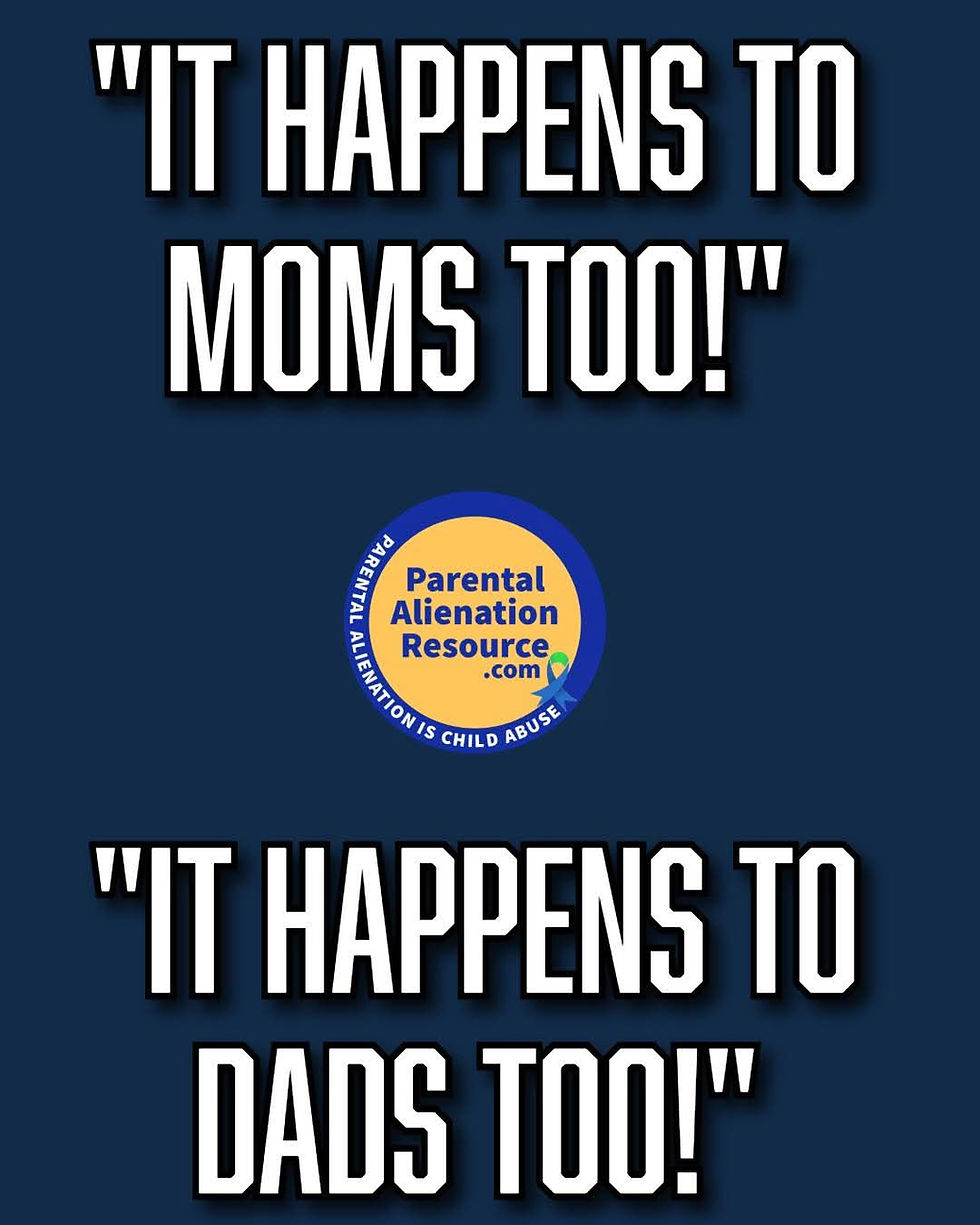When a GAL opts for an expert who dismisses parental alienation by stating that it is not acknowledged in the DSM-5, several critical issues arise.
- Aug 25, 2024
- 3 min read

In the landscape of family law, the role of Guardian ad LitemGAL) is crucial ensuring the best interests of the child are prioritized. This appointed advocate navigates often tumultuous waters of custody disputes often dealing with sensitive issues such as parental alienation. Parental alienation occurs when one parent to undermine the relationship between the child and the other parent, which can lead to emotional distress and long-term psychological damage for the child involved The selection of an appropriate expert to evaluate parental alienation is paramount, especially in cases where the child's well-being is at stake.
Understanding Parental Alienation
Parental alienation refers to a process where one parent negatively influences a child’s perception of the other parent, creating unwarranted fear, distrust, or hostility. This behavior can lead to significant emotional harm for the child and disrupt healthy familial relationships. While parental alienation is widely recognized in practice, it remains a contentious topic within psychological circles, particularly regarding its classification in reputable diagnostic manuals like the DSM-5.
The DSM-5, the standard classification of mental disorders used by mental health professionals, does not specifically include parental alienation as a formal diagnosis. However, this does not negate the reality of the phenomenon or its detrimental effects on children. It highlights the need for careful expert evaluation to distinguish between legitimate concerns regarding alienation and broader issues like parental conflict or manipulation.
The Responsibility of the Guardian ad Litem
A GAL is tasked with investigating the circumstances surrounding a child’s living situation and making recommendations to the court based on their findings. In cases involving allegations of parental alienation, the GAL's responsibility includes selecting a qualified expert who can accurately assess the situation and provide an informed opinion on whether parental alienation is occurring.
When a GAL opts for an expert who dismisses parental alienation by stating that it is not acknowledged in the DSM-5, several critical issues arise:
1. **Inadequate Assessment**: Choosing an expert who does not recognize parental alienation compromises the integrity of the assessment. Such an expert may overlook essential behaviors and dynamics that signify alienation, ultimately resulting in an incomplete or flawed examination of the child's experiences.
2. **Risk of Misdiagnosis**: If the chosen expert is biased against the concept of parental alienation, they may misinterpret the symptoms or behaviors displayed by the child. This misinterpretation can lead to inappropriate recommendations or interventions, potentially leaving the child vulnerable to continued emotional abuse or manipulation.
3. **Legal Implications**: A GAL’s failure to secure a thorough and balanced assessment can have lasting legal ramifications for custody arrangements. If the court receives incomplete or misleading information, it may make decisions that fail to protect the child from ongoing harm.
4. **Impact on the Child's Well-Being**: Most importantly, the child’s emotional and psychological well-being is put at risk. Children in situations of parental alienation often experience confusion, anxiety, and feelings of loyalty conflict. A poor evaluation may prevent necessary interventions that could help restore the child’s relationship with the alienated parent and mitigate the negative effects of alienation.
The consequences of selecting an inappropriate expert in cases of parental alienation extend beyond the courtroom; they impact the lives of children caught in the crossfire of parental conflict. Guardians ad Litem must exercise due diligence in choosing professionals who not only understand the nuances of parental alienation but also recognize its implications for child welfare. By prioritizing a comprehensive and informed approach to evaluation, GALs can better serve their clients and work towards healthier outcomes for children facing the distressing realities of parental alienation.
In summary, the intersection of legal representation, psychological evaluation, and child welfare necessitates a thoughtful and informed selection of experts to ensure that children receive the protection and support they need. Recognizing and addressing parental alienation—despite its contentious status within diagnostic frameworks—remains essential for fostering the emotional health and stability of affected children.





Comments